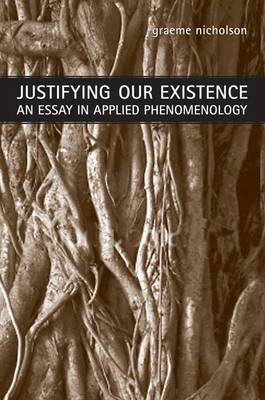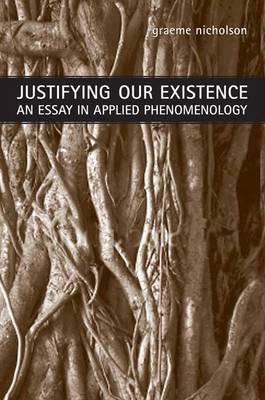
- Retrait gratuit dans votre magasin Club
- 7.000.000 titres dans notre catalogue
- Payer en toute sécurité
- Toujours un magasin près de chez vous
- Retrait gratuit dans votre magasin Club
- 7.000.0000 titres dans notre catalogue
- Payer en toute sécurité
- Toujours un magasin près de chez vous
Description
In his magnum opus Being in Time (1927), Martin Heidegger (1889-1976) argued that individuals have assumed that their existence is "a given," when in actual fact they simply have the ability to be. Justifying Our Existence examines the ways in which human beings attempt to calm their existential concerns by magnifying and proving their existence through phenomena such as self-righteousness, careerism, nationalism, and religion.
Using remarkably accessible and concise writing, Graeme Nicholson provides a close reading of Heidegger's methods to indicate how his work has a practical application for existential concerns. Justifying Our Existence shows how phenomenology can be used to foreground existence, while also providing startling insights into human behaviour, the motivation behind many of our social systems, as well as one of the twentieth century's most important philosophers.
Spécifications
Parties prenantes
- Auteur(s) :
- Editeur:
Contenu
- Nombre de pages :
- 208
- Langue:
- Anglais
- Collection :
Caractéristiques
- EAN:
- 9780802096203
- Date de parution :
- 01-02-09
- Format:
- Livre broché
- Format numérique:
- Trade paperback (VS)
- Dimensions :
- 152 mm x 221 mm
- Poids :
- 294 g

Les avis
Nous publions uniquement les avis qui respectent les conditions requises. Consultez nos conditions pour les avis.






